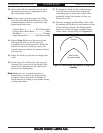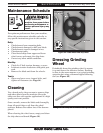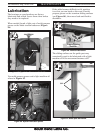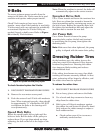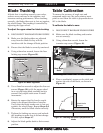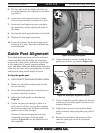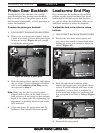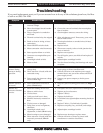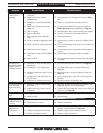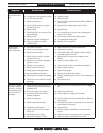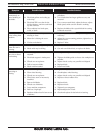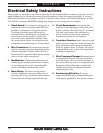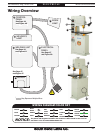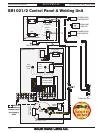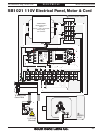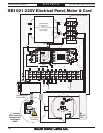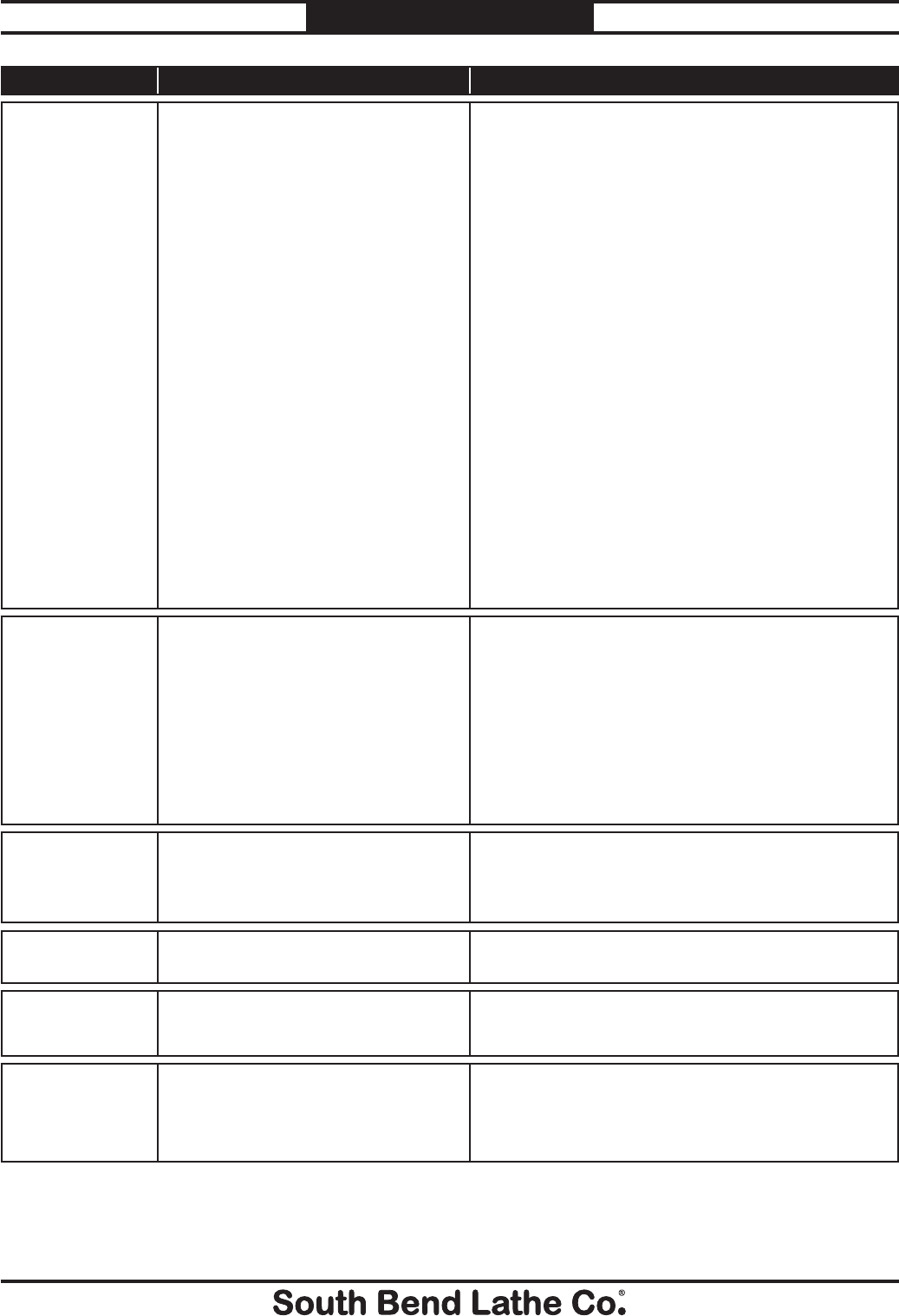
For Machines Mfg. Since 8/09 Model SB1021/SB1022
-39-
TROUBLESHOOTING
Symptom Possible Cause Possible Solution
Machine stalls
or slows when
operating.
1.
Too much pressure when feeding
workpiece.
1.
Reduce pressure when feeding workpiece.
2.
Motor is wired out of phase
(SB1022 only).
2. Swap two power incoming power leads (see Page
47).
3.
Workpiece is warped and binding
blade.
3.
Fabricate a jig for better workpiece control.
4.
Blade is not correct for material
being cut.
4.
Use the correct blade for the operation. Refer to
Blade Selection section beginning on Page 20.
5.
Belt(s) slipping.
5.
Tension/replace belt(s); ensure pulleys are aligned.
6.
Motor overheated.
6.
Let cool, clean motor, and reduce workload.
7.
Run capacitor at fault (SB1021
only).
7.
Test/repair/replace.
8.
Pulley or sprocket slipping on shaft.
8.
Replace pulley and key or set screw. Replace shaft
if worn.
9.
Motor connection wired incorrectly.
9.
Review wiring diagram on motor cover; correct wire
connections.
10.
Contactor has poor contacts.
10.
Test all legs for power, test field coil and replace if
at fault.
11.
Centrifugal switch at fault (SB1021
only).
11.
Adjust/replace centrifugal switch if available.
12.
Motor at fault.
12.
Test for shorted windings, bad bearings and repair
or replace.
Handwheel has
excessive backlash,
endplay, binds, or
is difficult to move.
1.
Leadscrew is dirty or lacks proper
lubrication.
1. Clean and lubricate the leadscrew (see Page 33).
2.
Pinion gears out of adjustment.
2.
Re-adjust pinion gears to reduce backlash (see
Page 37).
3.
Bearing or leadscrew collar is worn
or loose.
3.
Replace bearing or readjust leadscrew collar (see
Page 37).
4.
Linkage bolts, pins, and holes are
loose or worn.
4.
Replace linkage bolts, pins, and re-bush any worn
pin holes.
5.
Leadscrew or leadscrew nut worn.
5.
Replace leadscrew or leadscrew nut.
Welder is
inoperative or
welds poorly.
1.
Operator error.
1.
Use welder as outlined in operations section and
practice on scrap blades (see Page 28).
2.
Wiring or welding switch at fault.
2.
Repair wiring or replace welding switch.
3.
Welder transformer at fault.
3.
Replace welder transformer.
Cuts are not square
or the intended
angle is incorrect.
1.
Pointer or scale not calibrated or
loose table.
1.
Zero table to blade and realign scale pointers (see
Page 35). Tighten any loose fasteners.
2.
Table guide post is loose or out of
alignment.
2.
Tighten any loose hardware or lock levers. Align the
guide post (see Page 36).
Work lamp or
welding lamp does
not work
1.
Bulb, wiring, or switch at fault.
1.
Replace bulb, repair wiring, replace switch.
2.
Transformer is at fault.
2.
Replace transformer.
Grinder does not
work.
1.
Wiring or ON/OFF switch at fault
1.
Repair wiring or replace grinder switch.
2.
Motor at fault.
2.
Replace motor.



